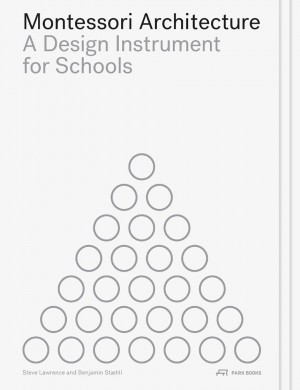By Steve Lawrence & Benjamin Staehli
Maria Montessori (1870–1952) was an Italian physician, reform educator, and philosopher whose ideas and work have remained influential since the 1910s. Her educational concept covers development from infancy to young adulthood. It is based on the image of the child as a “builder of his or her self” and uses the form of open teaching and free work in a prepared learning environment. Montessori schools became trendsetting institutions early on, and their concept is strongly reflected in their architecture and equipment. Montessori Architecture is the first book that comprehensively addresses design, construction, and the use of materials in and the furnishing of educational spaces according to Montessori’s ideas. The book’s first part explores spatial and design principles that make up good kindergarten and school buildings. In the second part, nine case studies are featured in detail through photographs, plans, and concise texts. These examples are located in Europe (the Netherlands, Belgium, Great Britain) as well as in tropical countries (Burkina Faso, Tanzania, Bangladesh, Sri Lanka).
Zurich, 2023, 26 x 20 cm, 286pp, illustrated, Paperback.
